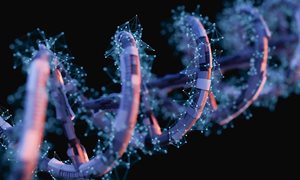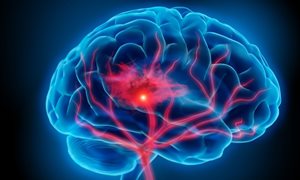 High cholesterol levels are a health risk, because of the increased chances of cardiovascular diseases. But research shows that low cholesterol can also be harmful. Researchers from Radboud university medical center and their Australian and American colleagues discovered a new metabolic defect, producing very low cholesterol levels. This causes brain anomalies, developmental delay, epilepsy and typical facial deformities.
High cholesterol levels are a health risk, because of the increased chances of cardiovascular diseases. But research shows that low cholesterol can also be harmful. Researchers from Radboud university medical center and their Australian and American colleagues discovered a new metabolic defect, producing very low cholesterol levels. This causes brain anomalies, developmental delay, epilepsy and typical facial deformities.
When physicians at the Wesley Hospital in Brisbane, Australia, studied the urinalysis of one of their patients, they discovered a different profile of the organic acids that they could not quite explain. Could it be possible that the profile was connected to the cause of the disorder? They decided to contact chemist Ron Wevers, who had developed a technique at Radboud university medical center (NMR spectroscopy) with which substances in the urine can be detected in great detail, even when the quantities are very small.
Faltering enzyme
Wevers: “The combination of the substances we found indicated that there was something wrong with the cholesterol production. Cholesterol enters our system through the food we eat, but the body itself is also capable of producing it. Apparently something went wrong in that process. It turned out that the enzyme that converts farnesol into squalene was not working properly. The urine contained far too much of the first substance and far too little of the second substance. The enzyme squalene synthase is the driving force of this conversion, so that is where we had to look to locate the problem.”
Genetic surprise
Wevers was able to locate a second family suffering from the same defect. A total of three patients were found at the time suffering from the same disorder. If the enzyme squalene synthase (SS) is indeed the culprit, then it should be possible to find mutations in the gene FDFT 1, which is the gene that codes for the SS. However, the genetic research caused the researchers to be surprised. Wevers: “We found mutations in one family that disturbed the effect of the enzyme, but we did not find those in the other family. That was a mystery that we were unable to solve for a long time.”
The solving of the mystery
The mystery was solved at long last by the research group of Lisenka Vissers of the Department of Genetics. Vissers: “A mutation causing a malfunctioning protein can usually be found in the gene itself. But in the second family the mutation was located outside the gene, which was why it had not been found in earlier genetic studies. This mutation prevents the gene for SS, which in essence is perfectly alright, to be read. That explains why the enzyme squalene synthase does not work after all. Mystery solved.”
Diagnostics
The researchers have used this knowledge to develop a test that will make it easier to find new patients in the currently used urinalyses.
Publication in The American Journal of Human Genetics: Squalene Synthase Deficiency: Clinical, Biochemical, and Molecular Characterization of a Defect in Cholesterol Biosynthesis.
Related news items

New genetic defect links cell biology and protein glycosylation
10 November 2021 Peter Linders, Dirk Lefeber and Geert van den Bogaart together with international colleagues have recently reported on novel cell biological insights, by identifying a genetic disorder in syntaxin-5 which allowed to unravel a new mechanism regulating intracellular transportation. go to page
Tiny blood vessels, big problems Radboudumc receives grant for international collaboration
3 November 2021 The Radboudumc, together with the University of Cambridge, receives a grant of €1.8M from three collaborating cardiac foundations for international research into the small blood vessels in the brain. This study will be led by Neurologist Frank-Erik de Leeuw and internist Niels Riksen. go to page
Infections increase risk to develop dementia
16 September 2021 In a recently published study, Radboudumc researchers investigated the effects of infectious events on cognitive decline and the development of dementia and its possible structural underpinning using pre- and post-infection MRI of the brain. go to page
Treatment of brain diseases at risk if neuroscientists can no longer conduct their research
5 August 2021 In order to treat brain diseases such as depression, Alzheimer's or ADHD, more research into the brain is needed. go to page
Three Vici grants for Radboudumc researchers
20 February 2020 Christian Beckmann, Sander Leeuwenburgh and Annette Schenck each receive a 1.5 million euro Vici research grant from NWO. go to page
Towards molecular therapies for Myotonic Dystrophy
1 October 2019ReCognitION, a new 1.3 M€ European project under the leadership of Peter-Bram ‘t Hoen, Baziel van Engelen and Jeffrey Glennon, was kicked-off in Gent.
go to page